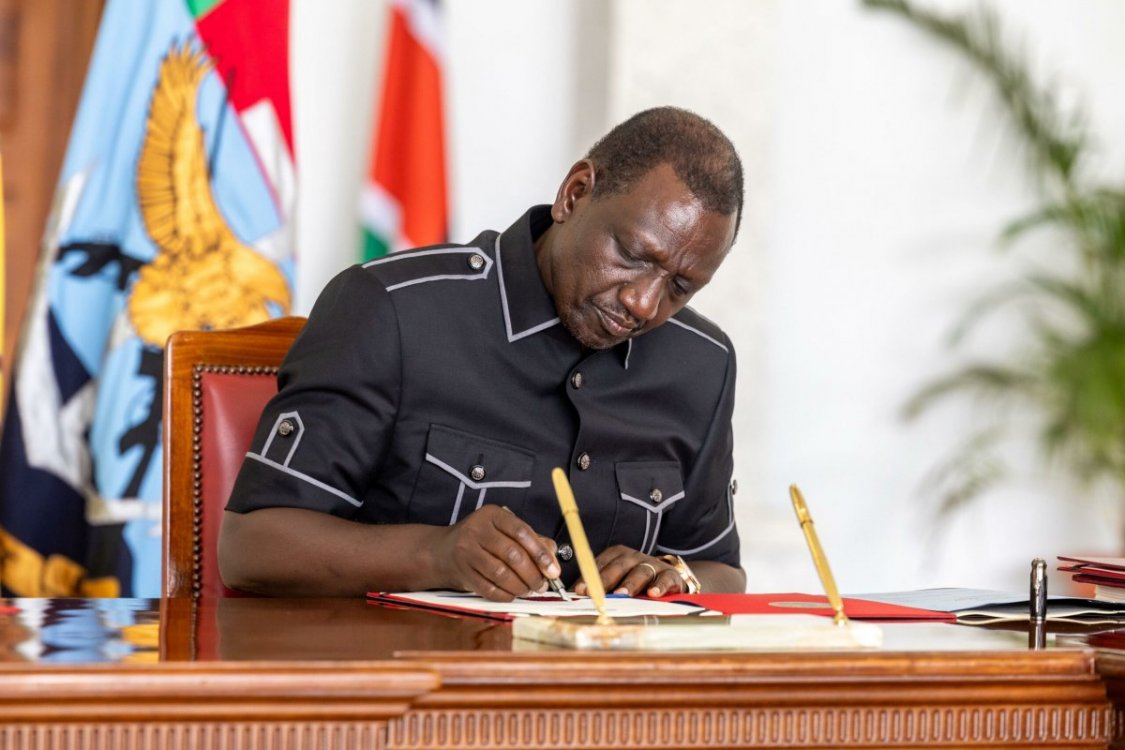The meat you’re eating is fuelling climate change

In recent years, the frequency of extreme rainfall events has significantly increased, not only in Africa but all over the world.
The concern is not about the amount of precipitation in a particular region, but about the duration of rainfall.
Recent studies have revealed crucial insights into the evolution of this phenomenon. The UN states that the Earth s currently about 1 degree hotter than pre-industrial times, around 1800. Climate change, which refers to the gradual changes in temperatures and weather patterns that occur over time, has led to changes in these weather patterns.
While some of these changes may be natural, human activities have been identified as the primary driver of climate change. Since 1950, we have been consistently breaking carbon dioxide records, and there are no signs of slowing down. Scientists attribute a 95% likelihood to human activity as the primary cause.
The growing use of fossil fuels like oil and coal is a major contributor to climate change. In the last 70 years, the global population has tripled, resulting in a sharp rise in the demand for animal products like meat.
This increase in consumption has contributed to the emission of methane, a harmful pollutant that traps heat in the atmosphere, leading to a warmer planet. Therefore, the next time you choose to eat meat, remember that you are contributing to climate change, even though the emissions might not be significant. The little things that we do count.
Human activities, such as deforestation and the cutting down of forests, reduce their ability to absorb carbon dioxide, leading to higher atmospheric concentrations. Industrial processes, including cement production, chemical manufacturing, and other industrial activities, release greenhouse gases.
According to the Internal Displacement Monitoring Center, Africa incurs losses ranging from 7 to 15 billion US dollars annually because of climate change. This figure will escalate to 50 billion dollars per year by 2040. Over the past two years, more than 2 million individuals in Eastern Africa have been displaced because of the effects of climate change.
Despite having the world 39;s lowest carbon emission contribution, East Africa is now suffering greatly from the effects of climate change. Climate change is now having an impact on more than 31.5 million people in Ethiopia, Kenya, Somalia, and South Sudan.
Because of the negative consequences of climate change, the area has already lost between 15 and 30 billion dollars between 2020 and 2022. As the torrential rains persist, their number is increasing even further.
These staggering numbers highlight the urgent need for action to mitigate the impacts of climate change in Africa. The continent is particularly vulnerable to the effects of global warming, with extreme weather events such as droughts, floods, and heat waves becoming more frequent and severe.
This has resulted in a rise in the number of internally displaced persons (IDPs) due to higher water levels and damage to infrastructure.
Governments, organizations, and individuals must collaborate to implement sustainable solutions and adapt to climate change to protect vulnerable populations. As floods become more frequent, long-term solutions like improved infrastructure and early warning systems are needed.
Prioritizing agricultural resilience through water infrastructure enhancement, livelihood diversification, sustainable land management, and social protection programs is also crucial.
Empowering local communities and investing in their innovative ideas will contribute to global efforts to combat climate change and promote food security. Governments and international partners must work together to support and scale up these initiatives, ensuring a brighter and more sustainable future for Africa and the world.
The writer is an Innovations Evangelist and a PhD Candidate
machariamuhoho@gmail.com












